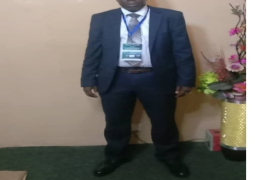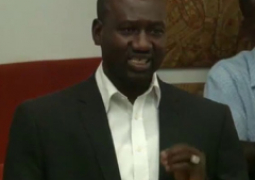At the event, Jainaba Faye, head of International IDEA Gambia office applauded GPU for inserting provisions such as hate speech in the revised journalism charter known as Cherno Jallow Charter.
She described the initiative as a timely intervention in stabilising The Gambia’s political discord, noting that the country recently experienced hate speech from politicians, which she observed, calls for the need for such provisions to be inserted in the Journalism Charter which would help in shaping Gambian media.
She stressed that hate speech has posed a danger to media, saying it also unravels the very fabric of national unity with its power to mislead, inflame, and destabilise the country.
Mrs Faye argues that the antidote lies in the values of journalists’ rigor, verification, transparency and ethical storytelling, urging journalists to be equipped to report with fairness and resist inflammatory rhetoric and promote dialogue over division.
She maintained that in prioritising sensitive and respectful reporting, journalists ought to ensure that the voices of persons with disabilities are heard and their rights upheld, noting that inclusive reporting does not only change the narratives, but it changes lives.
Mrs. Faye made reference to the fact that as technology is evolving, Artificial intelligence [AI] presents both opportunities and risks for journalism, maintaining that in recent times, there are Al-generated images that take algorithmic biases.
Sheriff Saidykhan, Vice President of The Gambia Press Union [GPU], stated that the Cherno Jallow Charter was developed to enhance public trust in the media.
The Charter, he added, would also empower journalists to navigate through the Criminal Code which, according to him, continues to stifle press freedom, adding that it will promote media professionalism in The Gambia.
He thanked the European Union and International IDEA and UNESCO for their collaboration and support of the review and validation process of Cherno Jallow Charter for ethics in Gambia journalism.
Fatou Njie, a representative of Secretary General of The Gambia National Commission for UNESCO (NATCOM), emphasised that the Charter provides “exactly’’ a living framework that guides journalists towards responsibility, fairness, accuracy, and public trust.
She urged every practitioner, seasoned editor or aspiring reporter to uphold the values that distinguish journalism from rumour, advocacy from manipulation, and truth from convenience.
Mrs. Njie states that a true value of the Cherno Jallow Charter does not lie on beautiful statements, but rather in how faithfully it is followed.
“As media institutions, regulatory bodies, and training institutions, our challenge is to embed this code into our day-to-day reporting, editorial policies, and newsroom cultures,’ she stated.
She thus appealed to media practitioners to give room for the Charter so that it can be a professional contract for ethical journalism and a reminder that journalism is not merely a career, but a public service.





